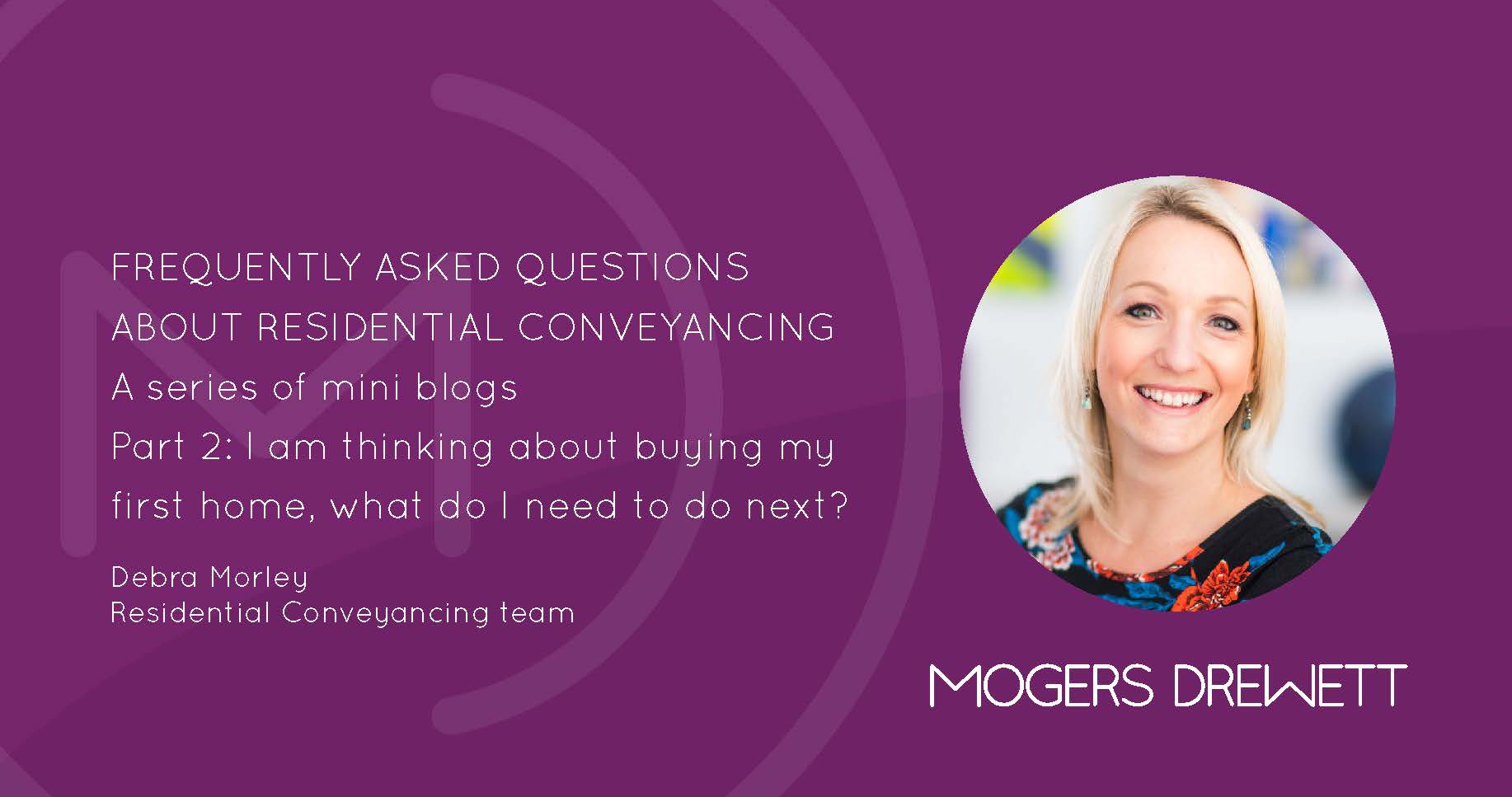FAQs About Residential Conveyancing: I am thinking about buying my first home. What do I need to do next?

In the second mini blog in this series of FAQs about Residential Conveyancing, Debra Morley, Associate Chartered Legal Executive in our Wells office, explains what to think about when you are a first time buyer.
Maybe you have found a property, been saving your deposit or are simply ready to search the market for the perfect home… Whatever your situation you should consider the following:-
- Deposit
It is normal practice for a deposit of 10% of the purchase price to be paid to the Seller’s Solicitor on exchange of contracts, with the rest of the money due on completion. So if you are buying a home for £200,000 you will usually need cash savings of at least £20,000 available.
- Getting a mortgage
Most first time buyers will need a mortgage to buy their first home. Mortgage lenders will assess your financial circumstances and offer you a loan they consider you will be able to repay over an agreed period (‘term’) at an agreed rate.
You can contact mortgage lenders directly or instruct a mortgage broker who will search the available options in order to find you the best deal.
It is important to avoid making any significant changes to your financial circumstances before applying for a mortgage, eg changing employment, applying for loans/credit cards, changing address, as this could impact upon your credit score and ability to get a mortgage.
- Hiring a Solicitor
Once you have had an offer accepted on a new property the estate agent will advise you to instruct a solicitor to act for you. For further information please see our ‘What should I consider when choosing a Conveyancer’ blog.
- Survey
You may want to consider instructing a surveyor to carry out an inspection of the property and provide you with a survey report before you exchange contracts. The estate agent will usually be able to recommend a local surveyor for you. A survey may reveal any issues with the property that your solicitor may not be aware of from reviewing the legal documents.
- Gifted Deposits
If family or friends have given (or are giving) money to you to help with your purchase, you should tell your solicitor straight away. Your solicitor will ask where your deposit has come from and if there is a gift in addition to your own personal savings this will need to be explained and reported to your mortgage lender.
- Stamp Duty
First time buyers are eligible for Stamp Duty Land Tax (SDLT) relief on properties up to a maximum value of £500,000. You will pay no SDLT up to £300,000 and 5% from £300,000-£500,000. For example, if you buy for £305,000 your SDLT would be £250. You must live in the property for this SDLT relief to apply.
- Joint Ownership
If you are buying the property with someone else you will need to decide how you want to own the property, ie as Joint Tenants or Tenants in Common. A Declaration of Trust may be suitable if you wish to record the shares in which you hold the property and how the proceeds of any future sale should be split between you.
- Making a Will
Following completion you may wish to consider making a Will to legally record what you want to happen to your assets when you die.
If you are a first time buyer and have been saving into a Help to Buy ISA account, or would like more information on the Government’s Help to Buy Scheme please look out for our ‘Help to Buy’ blog.
At Mogers Drewett we have a team of lawyers specialising in all different types of residential conveyancing transactions, including looking after first time buyers. No question will ever be a silly question – if you have any queries or want to discuss your options please give us a call today on 01225 750000 (Bath), 01749 342323 (Wells) or 01935 813691 (Sherborne).
